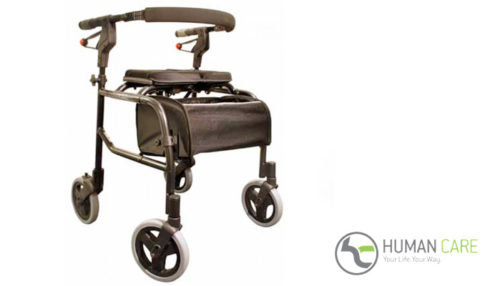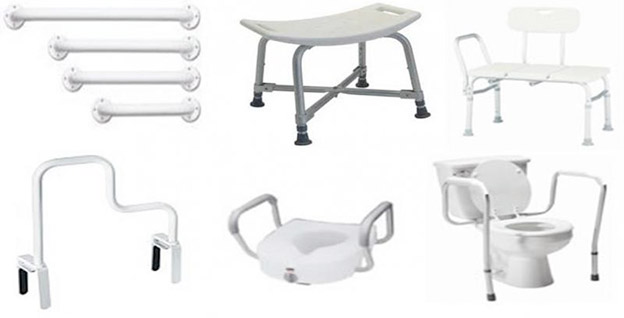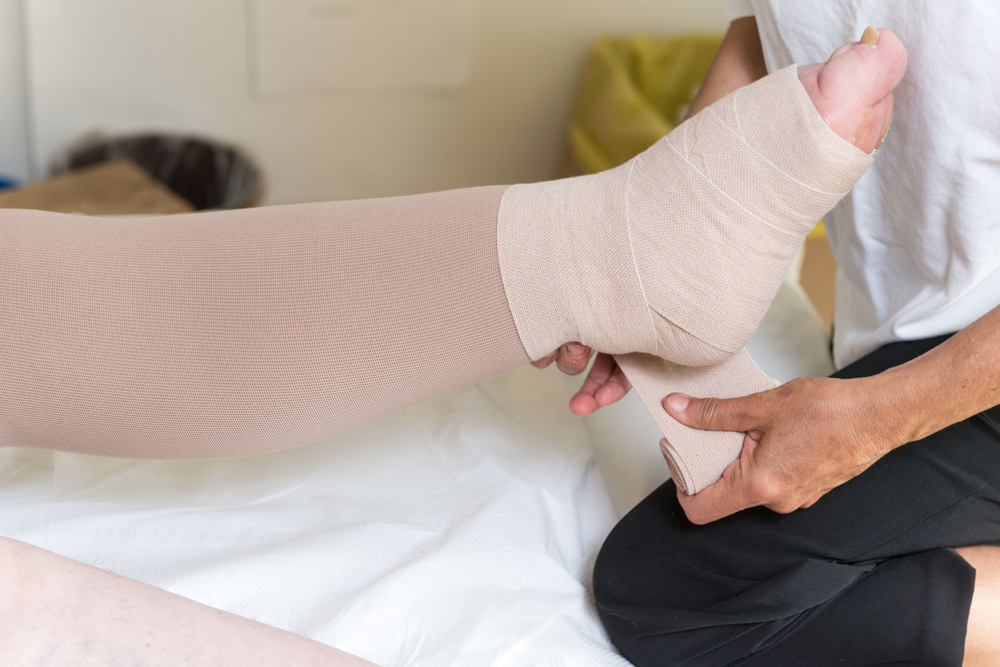Tips on Choosing a Cane That’s Right For You

A cane is a device that provides support and assists individuals in walking. Canes are often used by individuals who sustained an injury or have a disease that requires them to have assistance while walking. Whether you’re looking to buy your first cane, or upgrade your current cane, there are many different options to choose from. From tips to brands, grips to usability; our home health care product experts have developed a sheet of information about canes to help make your choice easier.
Single Tip
A cane can come with different tips. Tips are the base of the cane that meets the floor. The single tip cane is one type of cane. This cane has only one tip that meets the ground which makes the cane easy to move, use, and transport. This type of cane is used by individuals that only require help walking but does not balance well on its own.
Quad Tip
Canes also come in the option of a quad tip. This means that instead of only having one tip touch the ground like with a single tip, the cane has four tips that touch the ground. This type of cane is ideal for individuals who have a disability, underwent surgery, or require more support when walking. Although they provide more support, these additional tips makes the cane a little more difficult to maneuver. This is something that must be accepted as the quad tip cane provides the user with great stability while using the cane, and it can stand on its own.
Cane Type
Canes can be used in many different ways by several different people so it is imperative that they come in many different shapes and materials.
Foldable
Do you travel a lot? Then a foldable cane may be an option that you should consider. There are several different types of foldable canes, including ones made out of aluminum that fold in 3 places simply and easily without the use of any tools!
Aluminum
When selecting a cane, you must take into account the material that it is made of. Aluminum canes are both lightweight and durable which makes them a great option for a cane that you will be carrying with you.
Offset Cane
An offset cane is a cane that has a bend in the shaft that allows the horizontal handle to be positioned over the tip. This means that when weight is applied to the cane it is applied directly over the tip. This type of cane is ideal for someone with wrist pain who is seeking support and comfort.
Straight Cane
A straight cane is a cane that unlike the offset cane, has no bend in the shaft. This type of cane is available with different handles such as a T Handle which resembles a ‘T’ making it very ergonomic or a round handle which is a curved handle.
Tip Type
There are different types of tips on both single and quad tip canes. These tips are made for different types of ground or floor that the cane will be used on. From smooth rubber to bumpy rubber, the choice of a cane tip depends on where and how often you plan on using the cane. If a cane is being used outside in the winter on snow or ice, the cane will require a tip that has a sharp point or pick at the end in order to keep the cane safely on the ground.
Brands
Just as there are different types of canes, there are several different brands that make canes. Each brand offers a different type of cane and different options. Some examples of these cane brands include:
If you would like to learn more about any of these specific brands, or others, contact your home health care product experts at ADAPT Home Health Care!
Grips
A grip is the area where you hold onto the cane. This is important because if you are using the cane for many hours a day, a good and comfortable grip can ensure that your hand does not get sore or blister. Several canes come with a foam or padded grip whereas others come with a handle constructed out of metal or even wood. The decision on the type of handle is strictly a user preference as it does not affect the performance of the cane.
Fit
The fit of the cane is very important. When discussing fit, we mean the height and shape of the cane. Just like every home health care product, every cane is designed with a different user in mind. It is important that you get a cane that is the right fit for you to ensure that it is comfortable and provides the necessary assistance.
Height
Finding a cane that is the right height for you is very important. Not only will this affect the way you use the cane, but a cane that is of improper height can cause other issues such as back pain to arise. Some canes are constructed out of materials, such as wood, that don’t allow them to be adjustable. However, many canes now come with a button on the side that allows you to adjust the cane to a taller or shorter height! This means that you can adjust the cane based on how you intend to use it, or the cane can be used by multiple users.
Comfort
The comfort of the cane involves a combination of all the above listed elements of the cane. One cane may be comfortable for one person but not another. We suggest that you visit a home health care store to test canes prior to purchasing one to ensure that the cane has the comfort level that you desire.
Use
Will you be using this cane daily or only when an injury flares up? This is an important consideration when selecting a cane. Every cane is different and so is every individual, so it is necessary to test the cane to see if it is the proper cane for the way you intend to use it.
Canes are a great way to provide assistance for those who suffer from an injury or disease that limits their ability to walk without assistance. Reviewing the different types of canes and aspects of canes listed above is a great way to help you select the perfect cane.
Still need help deciding which cane is right for you? Contact the experts at ADAPT Home Health Care today! Our team will teach you more about each cane, learn more about your unique situation, and assist you with selecting the perfect cane. Call or visit us today at one of our 3 locations in the Greater Toronto Area. You can also learn more about us and the canes we offer on our website.
- Adapting the Workplace for People with Disabilities - December 2, 2020
- More About Rollators and The NeXus 3 - March 26, 2020
- Bathroom Safety 101 - March 12, 2020

 905-822-1614
905-822-1614



